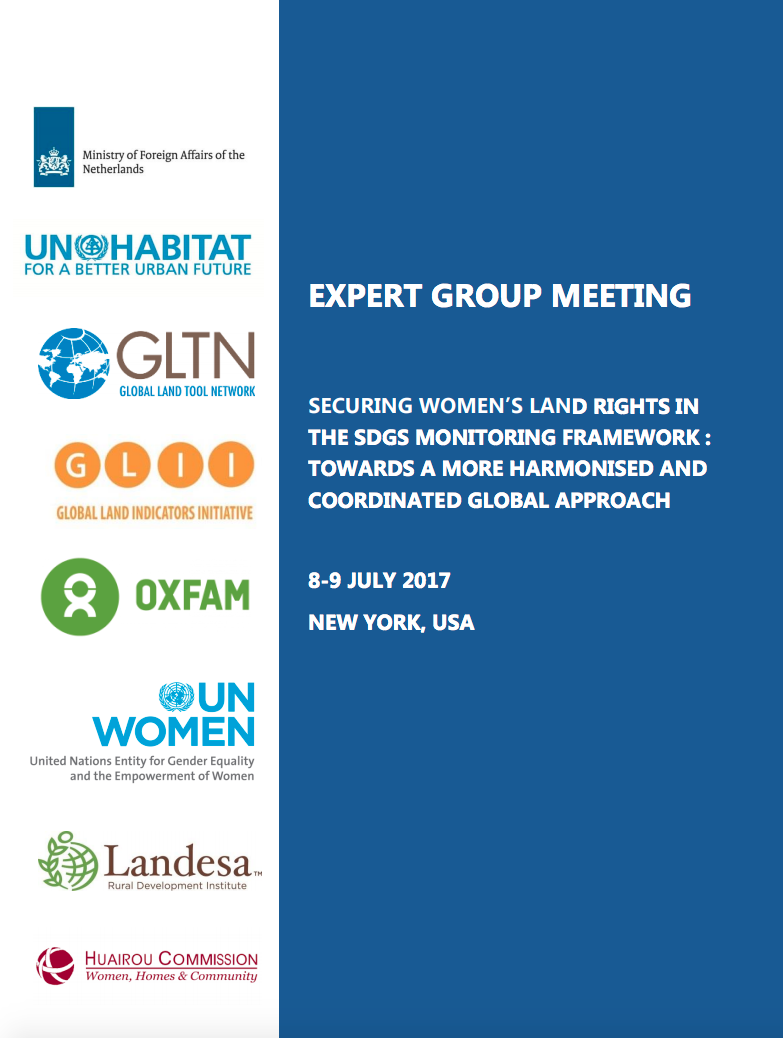Resource information
This Expert Group Meeting (EGM1 ) was convened with the purpose of examining land indicators in the Sustainable Development Goals (SDGs) and promoting meaningful and harmonised approaches to monitoring women’s land rights (WLR)2 . It was convened by the Global Land Indicators Initiative (GLII) of the GLTN, UN Habitat, and Oxfam with inputs and assistance from Landesa, UN Women and Huairou Commission as part of a process of work on the development of methodologies for the land related SDG indicator monitoring.
The EGM had a diverse attendance with 41 participants (29 women and 12 men); representatives from GLTN Partners, grassroots organisations, National Statistical Offices, multi-lateral organisations and UN agencies. The participants came from over 20 countries in five continents.
The timing of the EGM was of importance as it was organised to take advantage of the High Level Political Forum (HLPF) on Sustainable Development that took place in New York in the days immediately following the EGM. This provided an opportunity for participants at the EGM to attend and take forward women’s land rights recommendations in the HLPF. The HLPF was seen as an important moment and policy influencing space to discuss progress made on land tenure security related indicators (1.4.2, 5.a.1 and 5.a.2) and their progression movements from Tier III to Tier II and later Tier I during the IAEG on Sustainable Development due to take place in October [now postponed to November] 2017.
This report captures proceedings from this meeting including presentations, discussions on various issues related to women’s land rights and the SDG indicators monitoring process. This report further highlights key issues of concern for the effective monitoring of secure tenure rights from a women’s land rights perspectives, provides recommendations to custodian agencies working on these indicators and suggests approaches to enhanced coordination and harmonization of approaches for effective implementation and monitoring.
A summary of key messages from the EGM can be found in the communique from the meeting Annex 2 and a video with observations from the participants in this EGM is available at this link.






